Hidden Details and Secrets You Probably Missed In “Forrest Gump”
Forrest Gump is an iconic American movie that you’ve most likely seen or heard of. Since its 1994 release, this comedy-drama has captivated millions around the world. The movie tells the story of Forrest Gump – played by Tom Hanks – a slow-witted yet kind-hearted man from Alabama who witnesses and unknowingly influences several historical events in the 20th century.
The movie was a massive success at the box office and won many awards, including six Academy Awards, three Golden Globes, and two Saturn Awards. Let’s take a look at some interesting facts about Forrest Gump that viewers may not know about.
The Main Character
Several well-known actors turned down the opportunity to play Forrest Gump. Tom Hanks accepted the role after John Travolta, Bill Murray, and Chevy Chase declined to do so. Travolta declined the role so he could star in Quentin Tarantino’s dark comedy crime movie Pulp Fiction, for which he received an Academy Award nomination for Best Actor.
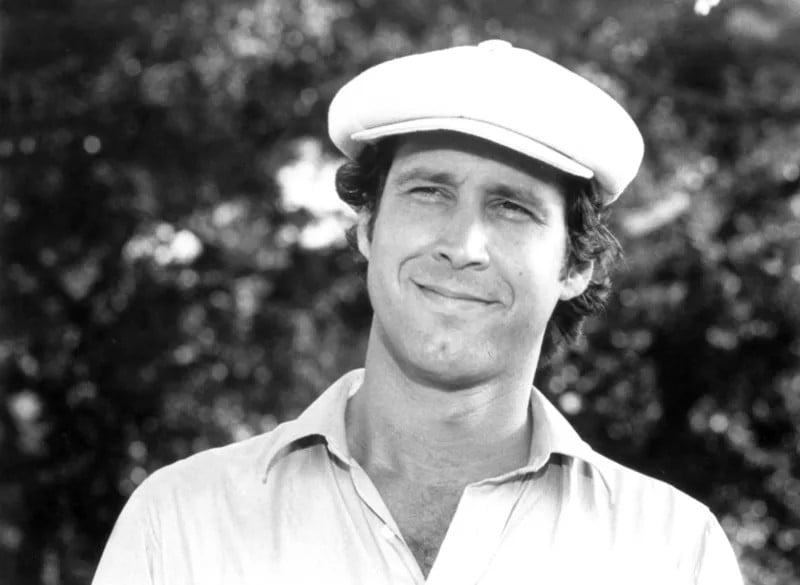
Daily Choices
While Chevy Chase may still be beating himself up over his decision, Travolta seems to have made the right choice. Pulp Fiction helped the struggling actor revive his career and regain his status as an A-lister.
Tom Hanks’ Career
Tom Hanks personified Gump’s character wonderfully, and it’s a good thing that he was chosen for this role. Not only was he allowed to be in the cast of an award-winning movie, but it also paved the way for him to become a dramatic actor. This role marked a major turning point in Hanks’ acting career.
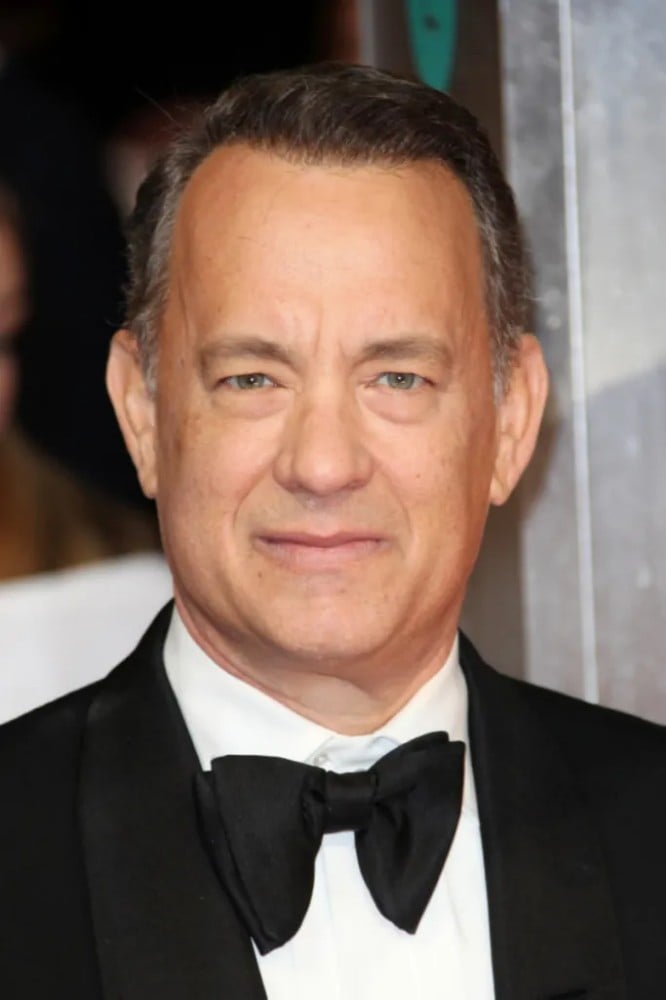
Daily Choices
Though Hanks was already an established actor when the movie was released, his career reached new heights after that. He would go on to star in everything from epic war movies like Saving Private Ryan to animated comedies like Toy Story and even rom-coms like You’ve Got Mail.
An Award-Winning Movie
Tom Hanks won Best Actor at the 67th Academy Awards for his role in Forrest Gump. The movie also won five other Academy Awards that same year: Best Picture, Best Director, Best Visual Effects, Best Adapted Screenplay, and Best Film Editing.
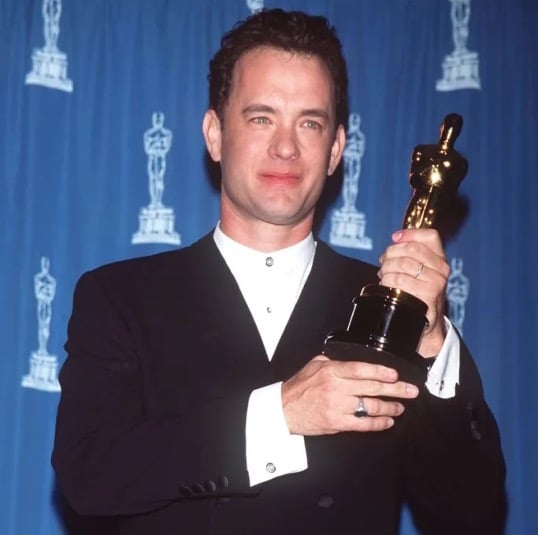
Getty Images photo by Frank Trapper
Forrest Gump was also nominated for seven Golden Globes and won three of them: Best Actor – Motion Picture Drama, Best Director – Motion Picture, and Best Motion Picture – Drama. The beloved film also won several other awards and was included in many of the American Film Institute’s top lists.
Sally Field as Mrs. Gump
Sally Field, who played Forrest Gump’s mother in the movie, is just ten years older than Tom Hanks. She was made to look older than she actually was with the help of a gray wig and some makeup. Interestingly, the two previously starred in the 1988 comedy-drama Punchline, where Field played Hanks’ love interest.
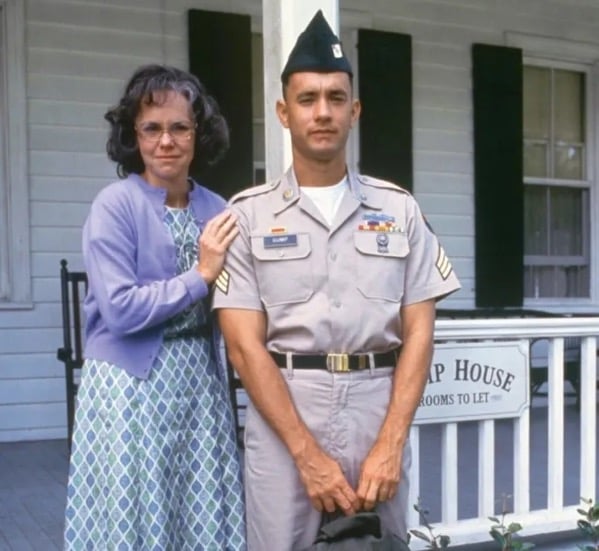
Daily Choices
We can only imagine what Field must have thought when she learned that she was going to play her former on-screen partner’s mother in this movie. The first few days of filming must have been quite awkward!
The Gump Residence
If you’re hoping to see Forrest Gump’s childhood home on your next trip to Alabama, you’ll be disappointed. The house that was used in the movie – a large, old southern farmhouse – was built in South Carolina, and it was completely demolished after filming had ended.
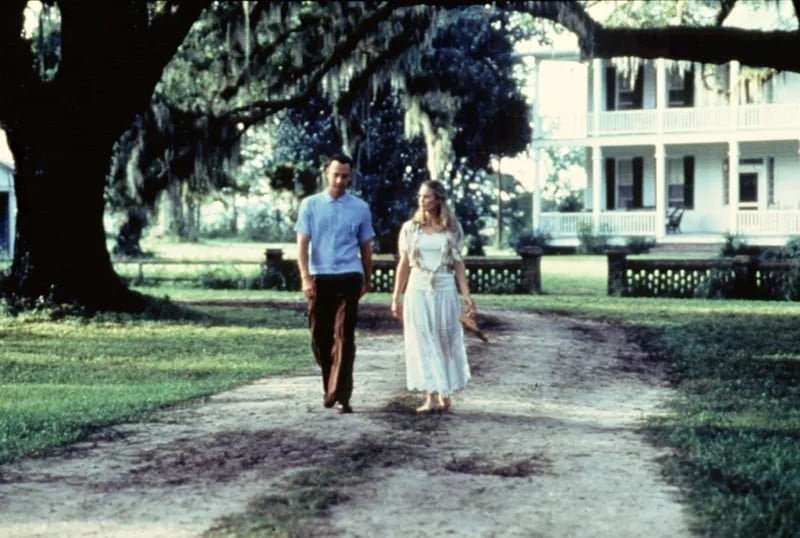
Movie Stills
However, you can still visit the place where the house was built. The Gump residence, along with Jenny’s farmhouse, was built on the Bluff Plantation on Twickenham Road, just southeast of Yemassee, a small town in Beaufort and Hampton counties in South Carolina.
Tom Hanks’ Earnings
Instead of receiving a salary, Tom Hanks agreed to a share of the movie’s earnings. This turned out to be a wise decision for Hanks, given that the movie raked in more than $677 million at the box office.
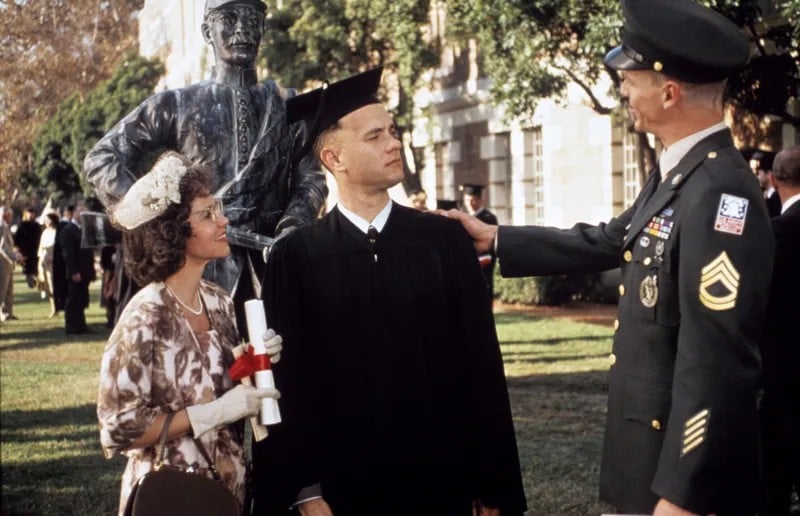
Daily Choices
After winning an Academy Award for Best Actor, Hanks became the second actor to win the award for two straight years. A year earlier, he won the award for his role in Philadelphia. Robert Zemeckis, the movie’s director, also saw great success. To this day, Forrest Gump is his highest-grossing movie.
Haley Joel Osment's Acting Debut
Haley Joel Osment was a child actor who appeared in numerous dramas and thrillers in the 1990s, including the 1999 psychological thriller The Sixth Sense. Osment made his acting debut at age six in Forrest Gump, where he played Forrest Gump, Jr.
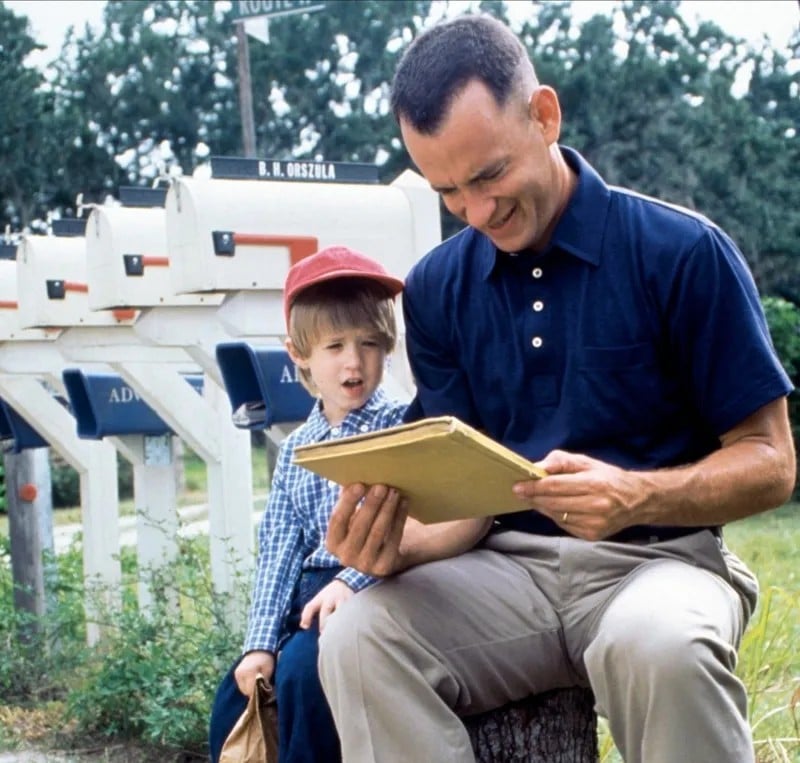
Daily Choices
Osment, now an adult, would describe Hanks years later as “a great first cinema Dad.” In 2011, Osment graduated from the New York University Tisch School of the Arts. These days, Osment continues to act in both movies and TV shows.
Trying To Be Normal
Ever noticed how Forrest always had his eyes closed in every picture taken of him throughout the movie? The reason this keeps happening has something to do with Hanks and the director wanting to create a convincing character with odd quirks and habits. Hanks wanted to convey someone who was focusing way too hard on being “normal.”
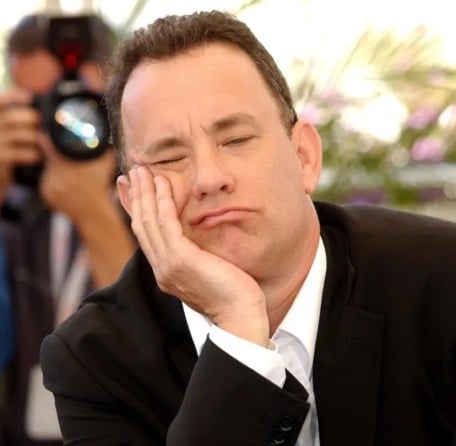
Forrest’s peculiar habit was ultimately Hanks’ idea. This is just one of many easter eggs that viewers may overlook unless they pay close attention to the movie. It also shows Hanks’ dedication to his craft.
Jim Hanks
Quite often, actors need a body double for physically demanding scenes. While it’s not always easy to match the actors, the industry usually finds a way. Luckily, the Forrest Gump crew did not have to look very far for a suitable double for Hanks. For many of the running scenes, Tom Hanks’ younger brother Jim was his body double.
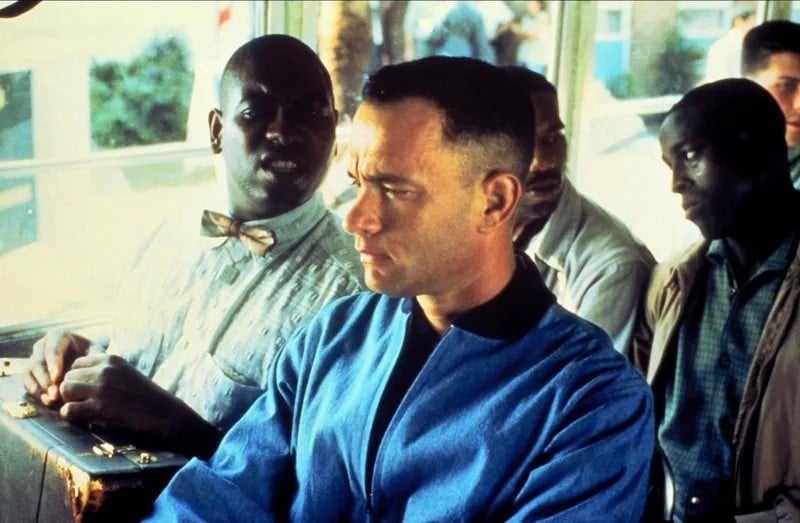
Daily Choices
Jim Hanks was a great runner back then. He also resembled his brother (obviously). However, not only do they look the same, but they sound the same, too. Jim would sometimes substitute for his brother in several Toy Story video games if the actor wasn’t available.
My Name Is Forrest Gump
One of the movie’s most iconic lines – “My name is Forrest Gump. People call me Forrest Gump.” – wasn’t even in the script. The line was ad-libbed by Hanks, and Robert Zemeckis loved it so much that he decided to keep it in the movie. Forrest says this line in the scene where he meets Bubba for the first time.
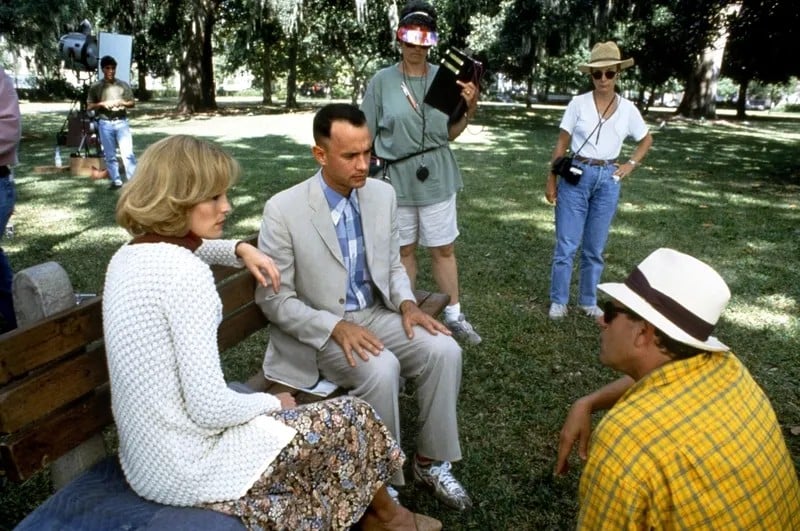
Getty Images Photo by Sunset Boulevard
Anyone who knows anything about movies will know that the line was a nod to the famous James Bond line, “My name is Bond, James Bond.” While we admire Gump’s kindness and work ethic, he lacks Bond’s suave attitude, which is what makes the line so memorable.
The Reporter
One lucky tourist from Atlanta got a once-in-a-lifetime opportunity to star in what would become one of America’s most beloved movies. The tourist played the reporter who interviewed Forrest when he visited Washington DC to receive his Medal of Honor.
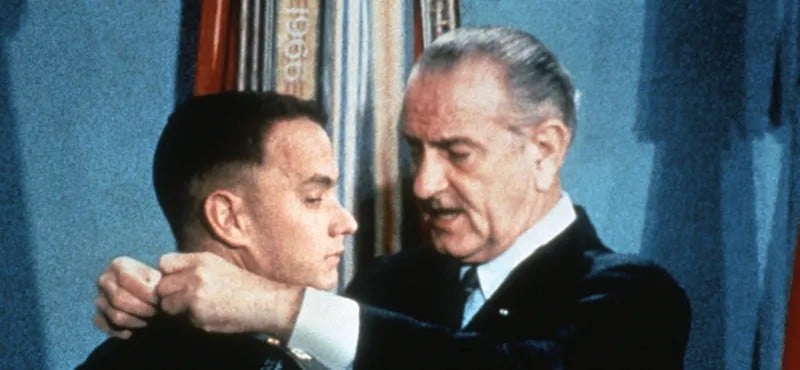
Daily Choices
The man was visiting DC with his wife at the time. The producers spotted him and asked him to read the script. He reportedly read the lines so well that he ended up getting cast in the movie.
The Medal of Honor
The scene where Forrest receives his Medal of Honor looks quite realistic. This is because the creators used real footage of American soldier Sammy L. Davis receiving his Medal of Honor from President Lyndon B. Johnson. Hanks’ head was superimposed over that of Davis.
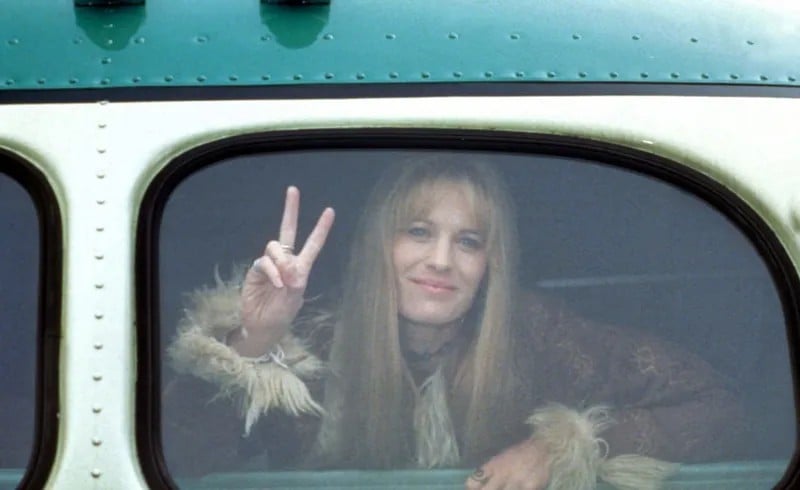
Daily Choices
Davis enlisted in the US Army in 1965. Two years later, he was sent to South Vietnam and was assigned to Battery C, 2nd Battalion, 4th Artillery Regiment, 9th Infantry Division. He received his Medal of Honor on November 19th, 1968, a year and a day after his unit fell under heavy mortar attack and machine-gun fire west of Cai Lay.
Robin Wright
Robin Wright received critical acclaim for her role as Jenny Curran – Forrest’s childhood friend and love interest – receiving Golden Globe Awards and Screen Actors Guild Awards nominations for Best Supporting Actress. Other actresses who turned down the role of Jenny include Demi Moore, Jodie Foster, and Nicole Kidman.
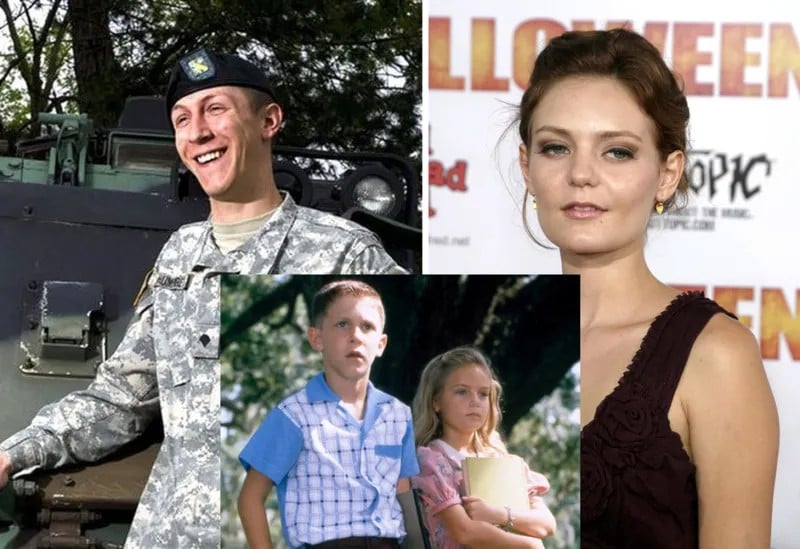
Daily Choices
Wright first gained attention for her role as Kelly Capwell in the NBC Daytime soap opera Santa Barbara. She also played Claire Underwood in the Netflix political drama House of Cards, for which she received a Golden Globe Award for Best Actress, as well as multiple Primetime Emmy Award nominations. She was reportedly paid as much as $420,000 per episode.
Forrest Gump's Accent
One of the things that director Robert Zemeckis struggled with was figuring out Forrest’s accent. It wasn’t until he heard the young actor Michael Conner Humphreys speak that he knew exactly how Forrest should sound like. Humphreys played the young Forrest Gump.
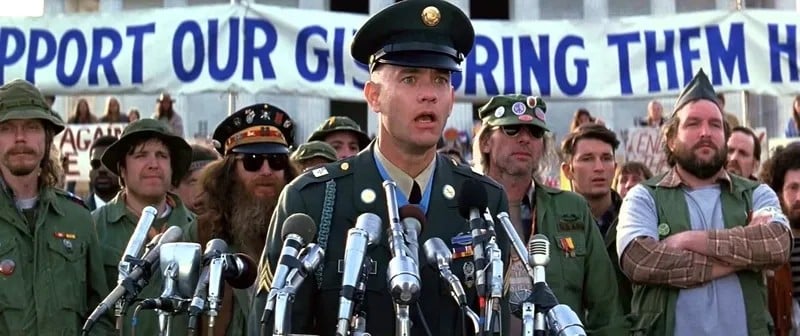
Getty Images Photo by Sunset Boulevard
Humphreys spoke with a thick Mississippi accent. He also struggled to sound more like Tom Hanks. As a solution, Hanks decided that he would try to sound more like Humphreys instead. According to Hanks, he kept cassette tapes of himself talking to Humphreys, and he would spend countless hours listening to them.
Forrest's Speech
While in Washington DC, Forrest meets an activist named Abbie Hoffman, who invites him to an anti-war protest to speak about his experience fighting in Vietnam. However, protesters couldn’t hear what Forrest was saying as his microphone had been unplugged.
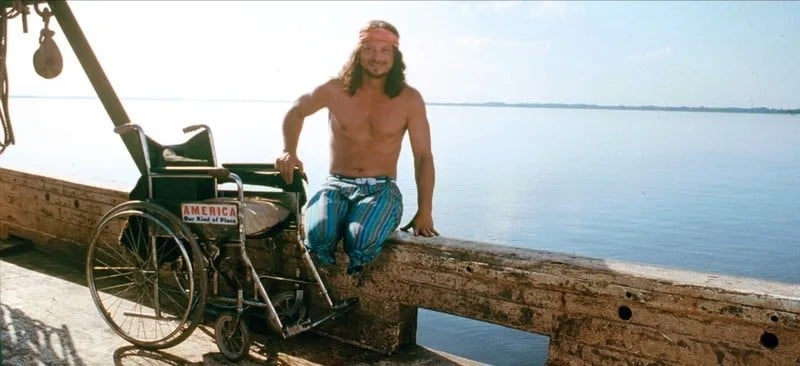
Daily Choices
What Forrest really said when he spoke at that protest was that some people who go to Vietnam go home without any legs, while some don’t get to return home at all. He then ends his speech by saying that it’s “a bad thing,” and that’s all he had to say about it.
Gump and Co.
Following the movie’s success, Winston Groom – the author of the novel that the movie is based on – decided to write a sequel called Gump and Co. The sequel’s text contains grammatical and typographical errors to remind readers of Forrest’s lack of intelligence and education.
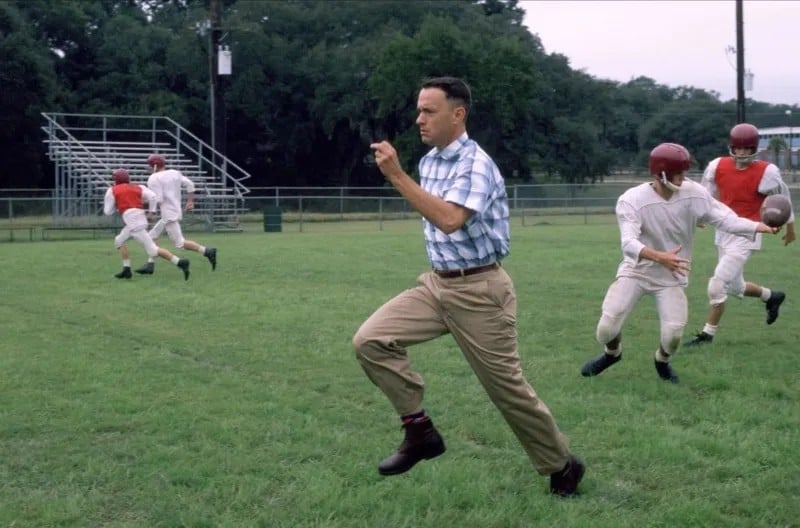
Daily Choices
In 2001, Eric Roth wrote a screenplay based on the sequel. However, following the September 11 attacks, Roth, Zemeckis, and Hanks thought that the story had become irrelevant. In 2007, it was reported that Paramount Pictures had taken another look at the project, though nothing came of it.
Forrest’s Blue Checkered Shirt
In the movie, we see Forrest in different stages of his life. We first see him as a child, then as a teenager, and finally as an adult. You may have noticed Forrest wearing a blue checkered shirt in different scenes throughout the movie. There’s a perfectly good reason for that.
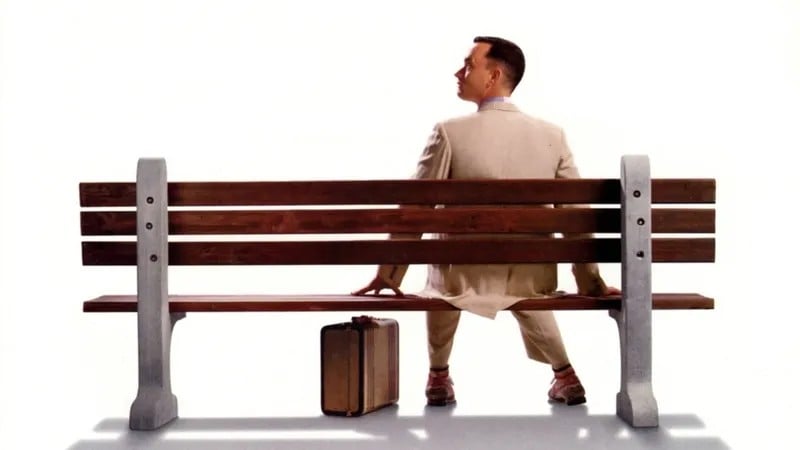
Movie Stills
Forrest wears a blue checkered shirt in the first scene of every age transition to denote a change in time. Forrest’s son can also be seen wearing a blue checkered shirt at the end of the movie, signifying yet another stage in Forrest’s life.
The Real-Life Forrest Gump
The running scene in Forrest Gump was inspired by a true story. In 1982, a 16-year-old named Louis Michael Figueroa promised a ten-year-old cancer patient that he would run across the US for him. He then set out from New Jersey to San Francisco, raising funds along the way for the American Cancer Society.
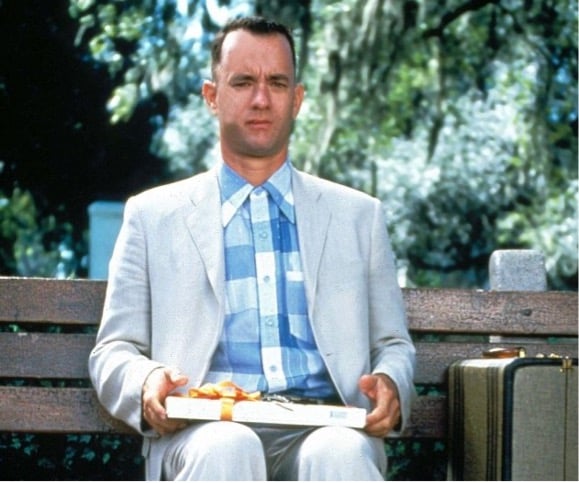
Imgur
Figueroa’s journey across America took 60 days, making him the youngest and fastest runner to run across the country. Fourteen years later, Figueroa – in remission from a battle with Leukemia – ran across the country again, this time inspired by his brother Jimmy who was diagnosed with AIDS.
Bubba Blue
Among those who turned down the opportunity to play Gump’s friend Bubba Blue were Ice Cube and Dave Chappelle. Ice Cube reportedly rejected the offer as he didn’t want to play a dumb character, while Chappelle didn’t think that the movie would be successful.
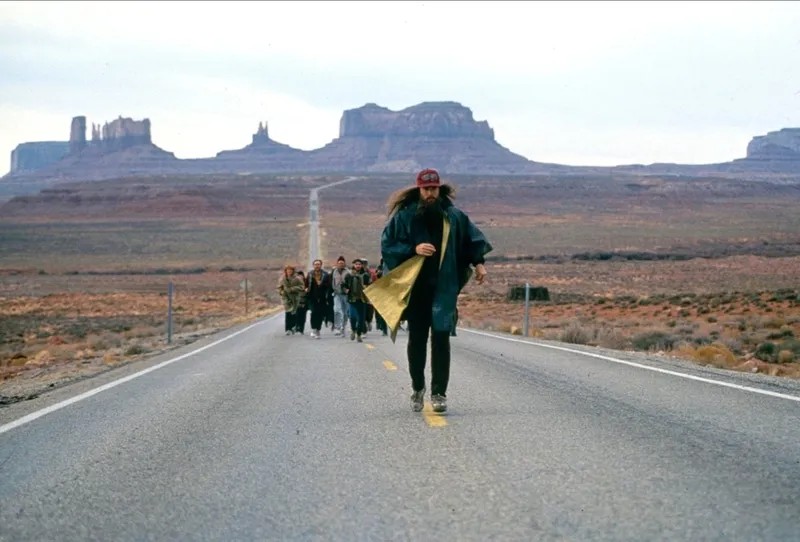
Daily Choices
The role of Bubba would eventually be accepted by Michael T. “Mykelti” Williamson. While both Ice Cube and Chappelle have expressed their regret over this missed opportunity, everything still worked out in the end as they both managed to lead successful careers.
The Feather
The movie begins with a feather drifting through the air and landing before Forrest’s feet. Fans of the movie have interpreted this scene in many ways. To some, the feather symbolizes Forest’s compassionate and wandering nature.

Daily Choices
Forrest’s famous “life is like a box of chocolates, you never know what you’re gonna get” line seems to confirm this. However you interpret it, it is certainly one of the most profound scenes in cinematic history, and it really sets the tone for the rest of the movie.
Mykelti Williamson’s Struggles
While Mykelti Williamson was fortunate to get cast as Bubba, he would, unfortunately, struggle with being typecast after Forrest Gump. Many people in Hollywood also didn’t realize that Williamson’s lip deformity in the movie wasn’t real.
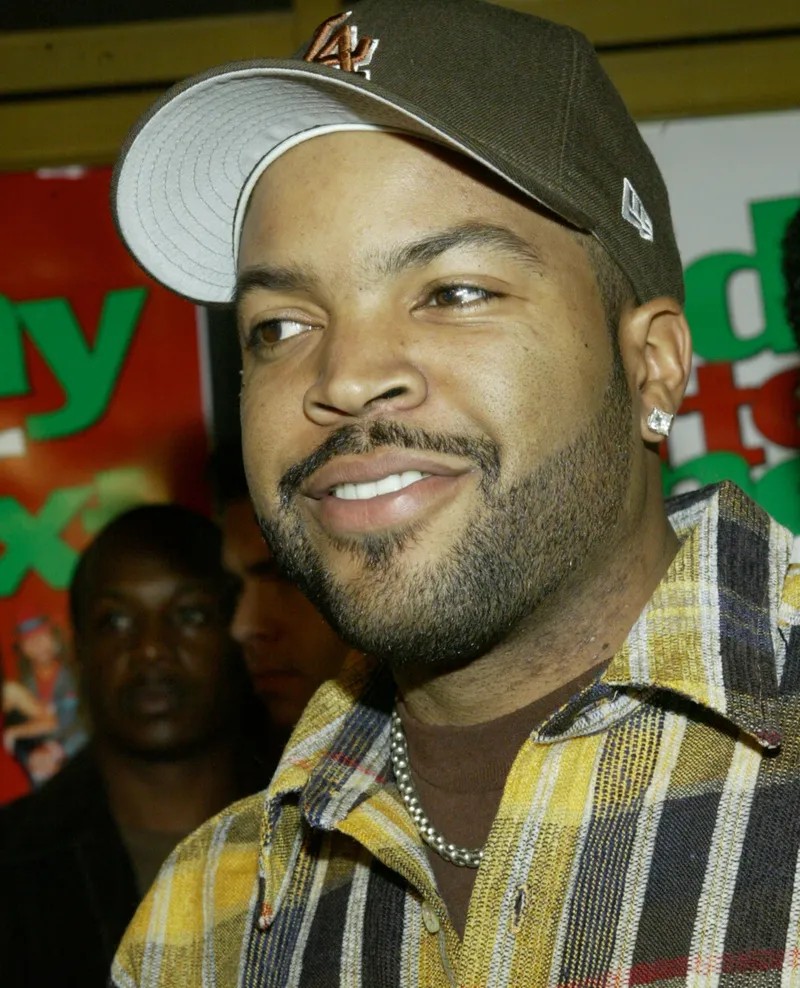
Getty Images Photo by Frederick M. Brown
As a result, Williamson’s previous work went unnoticed, even though he had already appeared in over ten movies before Forrest Gump. He eventually managed to get cast in movies like Heat, Waiting to Exhale, Truth or Consequences, N.M., and Con Air, but it wasn’t easy.
An Exhausting Day
Robin Wright was feeling quite sick while filming the scene in which Jenny performs at a nightclub in Nashville, Tennessee. Filming this scene took 24 hours to complete. To make matters worse, she had to perform topless.
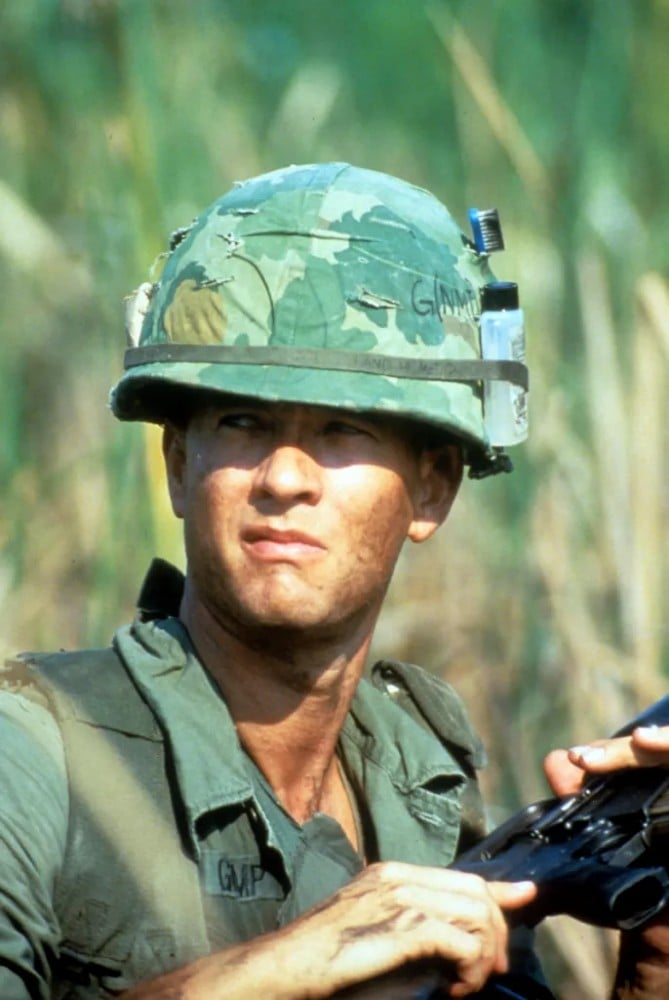
Getty Images photo by Paramount
Fortunately, Wright’s hard work paid off. The result was a heartbreaking scene showing how Jenny’s career didn’t turn out the way she wanted it to. She was also booed and heckled by brutes in the audience, which left her feeling humiliated and discouraged.
The Iconic Bench
The bench that Forrest sits on in the movie is just as iconic as the movie itself. The bench scenes were filmed at Chippewa Square, one of the busiest downtown squares in Savannah, Georgia. Four fiberglass benches were used during production.
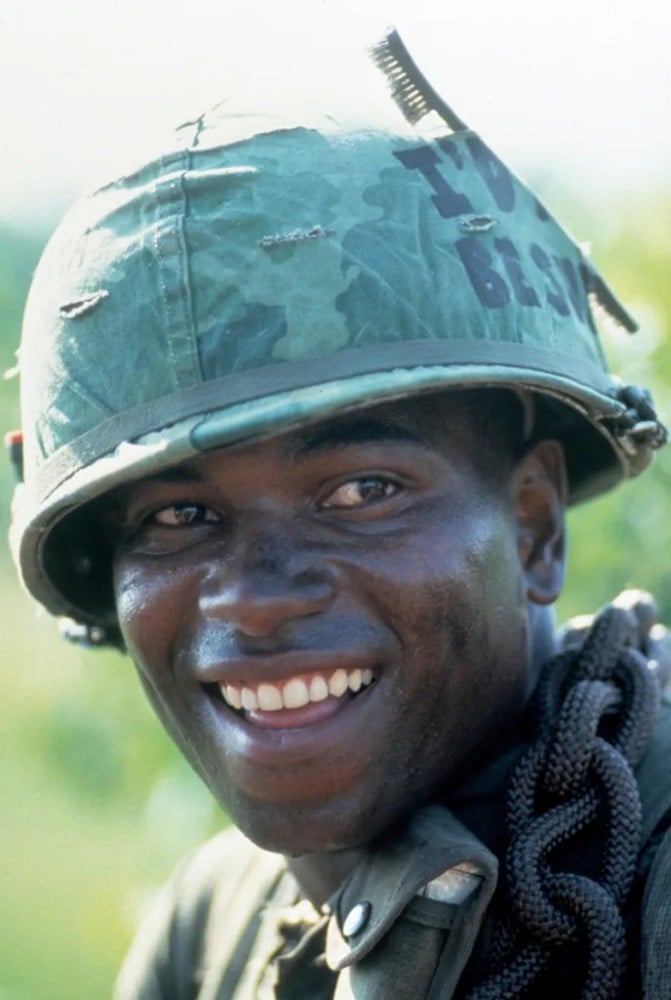
Daily Choices
One of the benches was eventually put on display at the Savannah History Museum, while another bench was sold at an auction in 2013 for a whopping $25,000. The location of the other two benches is unknown, though one is reportedly at the Paramount Pictures lot in California.
Amazing Special Effects
Gary Sinise, who played Lieutenant Dan Taylor, is not an amputee in real life. In the movie, he is initially shown as an able-bodied person. He later loses both of his legs in Vietnam. Special effects were used to erase his legs.
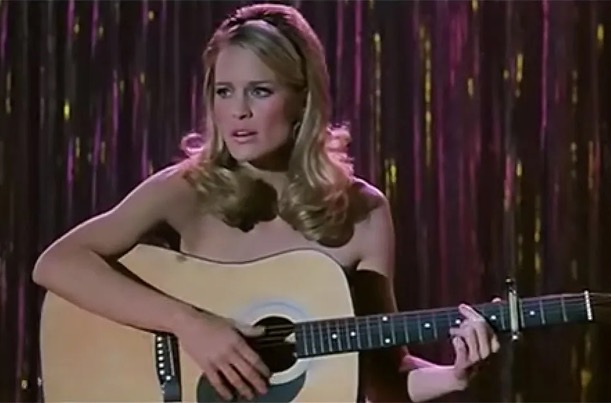
Movie Stills
Sinise wore blue fabric on his legs to make it easier to digitally erase them. Sinise would later say in an interview that he was shocked by the special effects when he saw the finished movie for the first time. The results were so convincing that it’s hard to believe that Sinese isn’t a real amputee.
Sick With the Flu
Robin Wright wasn’t the only cast member who filmed their scenes while sick. Tom Hanks had the flu while filming the football scene. Unfortunately for the actor, a tight filming schedule meant that he had no other option but to show up on set.
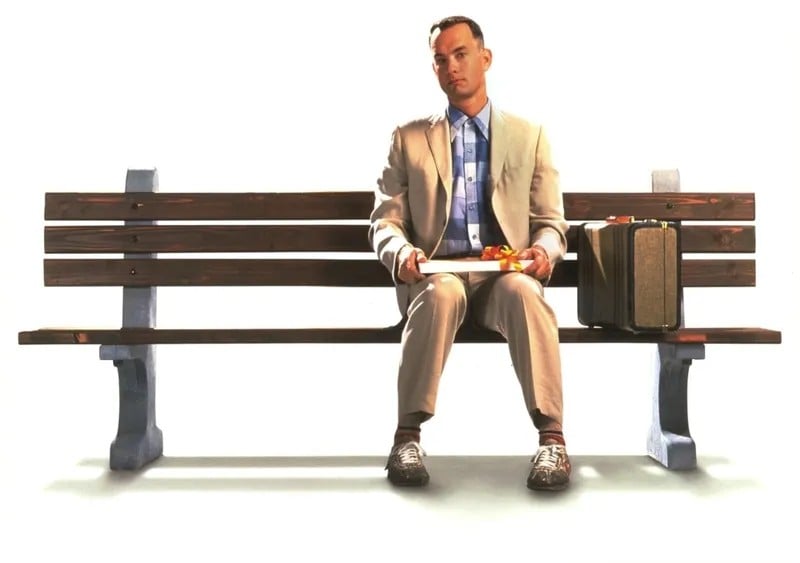
Daily Choices
It’s a shame that Hanks’ brother Jim wasn’t available for this scene. He would have done an excellent job as his brother’s body double. Despite the odds, however, Hanks managed to do a swell job.
The Doors
The movie featured a total of six songs by the rock band The Doors. Robert Zemeckis was a huge fan of the band and believed that their sound evoked the wild feeling of the era quite well. He was right – the movie wouldn’t have been the same without their music.
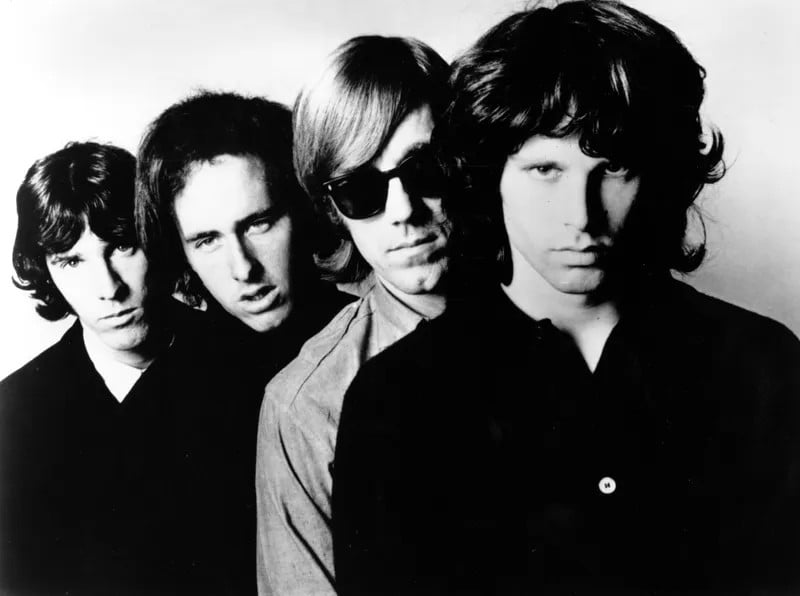
Getty Images Photo by Michael Ochs Archives
The Doors were an American rock band formed in 1965 in Los Angeles. Jim Morrison was the band’s vocalist. The band disbanded in 1973, two years after Morrison’s untimely passing. However, they are still one of the most successful bands of all time, with over 100 million albums sold worldwide.
Girl With Black Eye
The scene in which Forrest is sitting outside the principal’s office while waiting for his mother was inspired by Norman Rockwell’s painting “Girl With Black Eye.” The painting first appeared on the cover of The Saturday Evening Post on May 23rd, 1953.
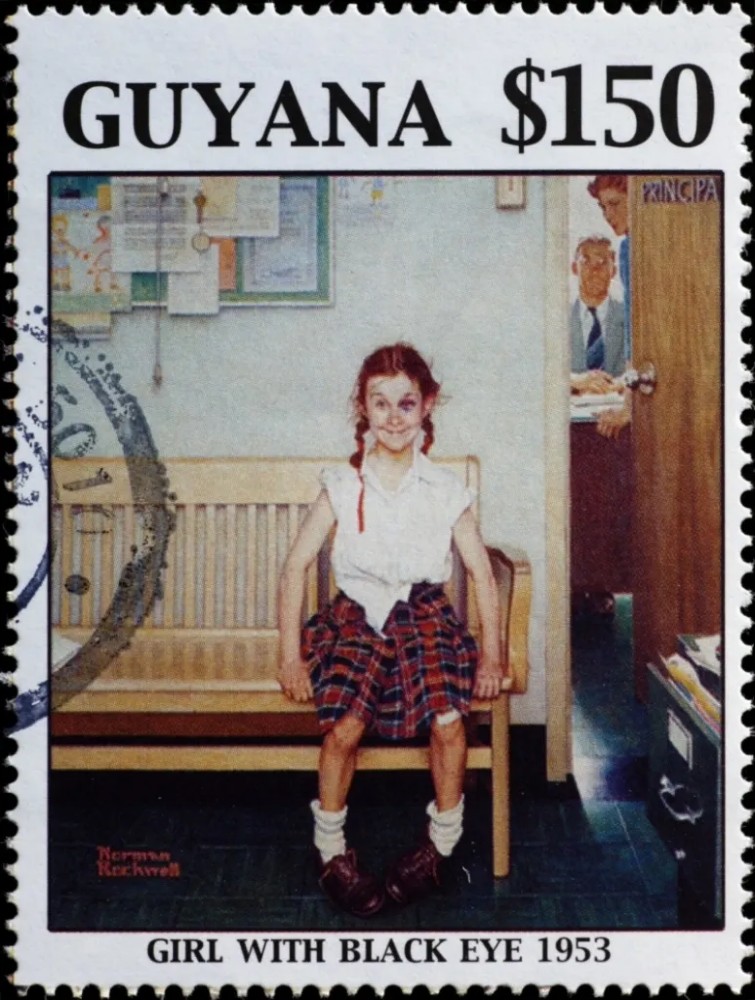
Daily Choices
This particular painting was the 277th out of 322 paintings by Rockwell that was featured on the cover of The Saturday Evening Post. Mary Whalen, Rockwell’s model for this painting, appeared on the cover of the now-defunct magazine three times.
Differences Between the Novel and the Movie
The Forrest Gump movie differed substantially from the novel. In the movie, Forrest is more naive, passive, and impulsive. In the book, he is more self-aware, saying in the book’s opening that he is treated poorly by others because they think he’s stupid.
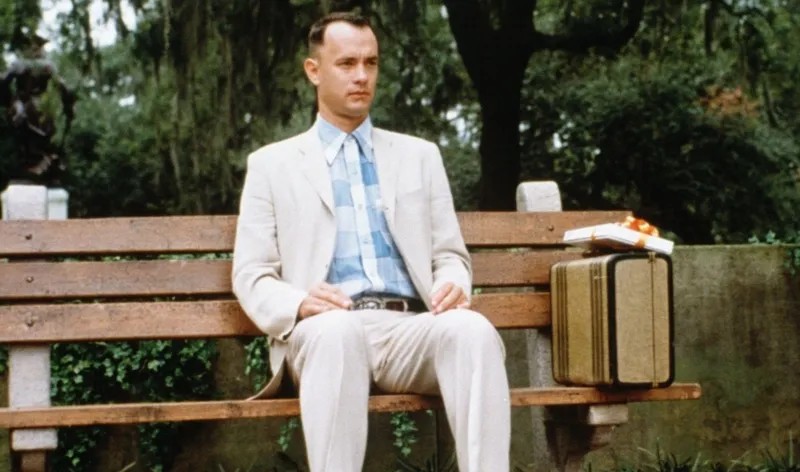
Daily Choices
Groom’s Forrest Gump is also significantly bigger than Tom Hanks, at 6’6 and 240 pounds. The novel also features Forrest becoming an astronaut, a chess player, and a professional wrestler, while the movie does not. The movie also focuses more on the novel’s first eleven chapters before skipping ahead to the end.
Cameo Appearance
Tom Hanks’ daughter Elizabeth and Robert Zemeckis’ son Alexander both appeared in the movie. They were among the schoolchildren who made fun of Forrest on the bus. Elizabeth, also known as EA Hanks, has since become a writer – she previously worked as a staffer at Vanity Fair and as an associate editor at The Huffington Post.
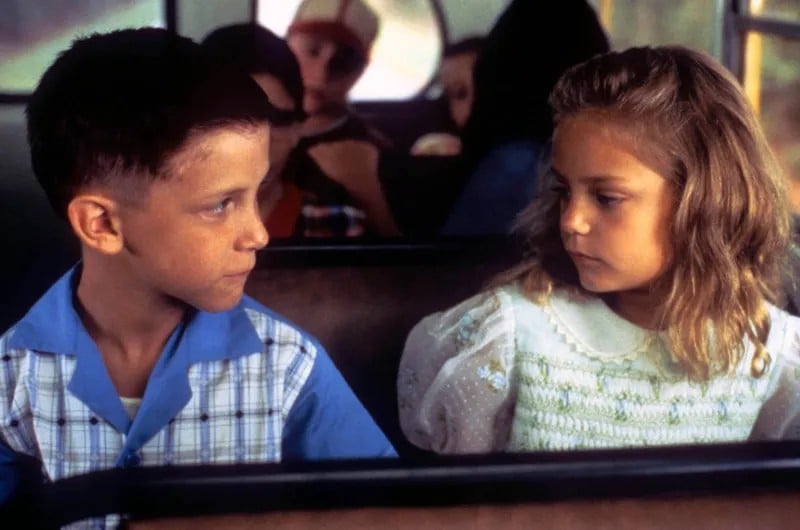
Daily Choices
She has also written for several high-profile publications, including The New York Times, Time Magazine, and The Guardian. Elizabeth isn’t the only one of Hanks’ children that worked in Hollywood – his eldest son Colin has appeared in movies like Orange County and King Kong, while younger son Chet has had recurring roles in shows like Empire and Shameless.
Jenny's REAL Cause of Death
In the movie, Jenny famously dies of illness, which breaks Forrest’s heart. There has been a lot of conversation around Jenny’s true cause of death since the movie came out since the directors never said definitively what it was.
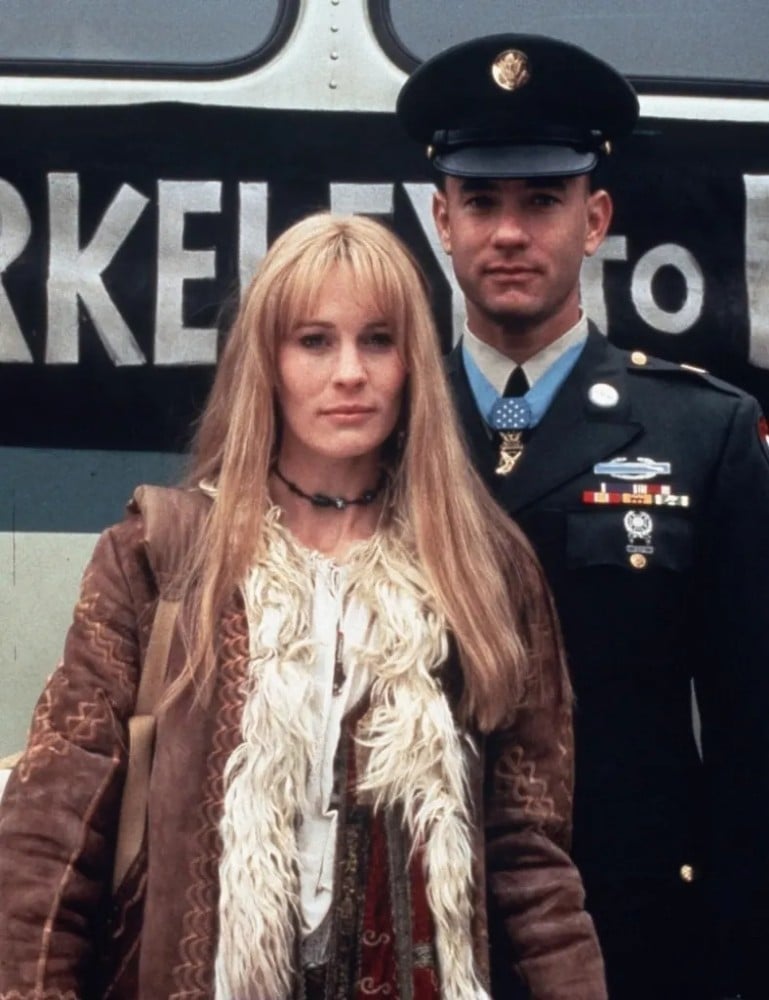
Movie Stills
Most everyone believed that she had died of AIDS in the film due to her risky lifestyle and substance abuse problems. Finally, it was confirmed that this was in fact Jenny’s cause of death.
Jenny’s Last Name
Jenny’s last name was never said out loud in the movie, but if you pay close attention, you’ll know that her last name is Curran. You’ll see her last name written on the envelope that Forrest sent her while he was in Vietnam.

Imgur
Her last name is also on the mailbox outside her childhood home. Finally, you can also see her last name on the letters that Forrest receives while in the hospital. Jenny’s last name may have never been mentioned by anyone throughout the movie, but she certainly has one!
“I'm In!”
Tom Hanks agreed to star in the movie after reading the script for just an hour and a half. According to producer Steve Starkey, they sent the script to Hanks because they believed he was the only one who could play the role. After reading the script, Hanks called and said, “I’m in!”
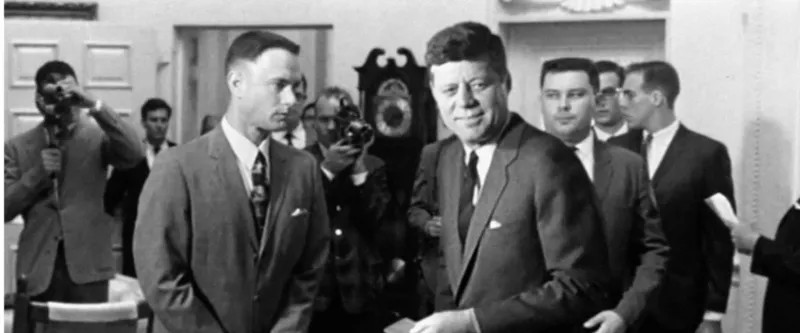
Daily Choices
Hanks either has great instincts about what roles are right for him, or he’s that great of an actor that he can effectively play just about any role. We have yet to see him pick the wrong role throughout his acting career. Here’s hoping that this never happens!
A History Nerd
Tom Hanks agreed to star in Forrest Gump as long as the movie was as historically accurate as possible. The movie includes several real-life events that took place in the 1960s, 1970s, and 1980s, like the March Against the Vietnam War and the Watergate Scandal.
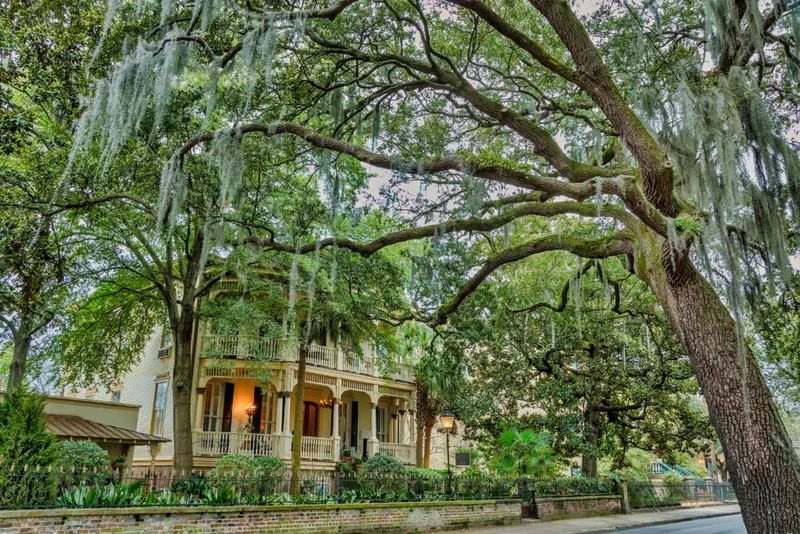
Daily Choices
Famous figures like Elvis Presley and President John F. Kennedy also appear in the movie. Hanks considers himself a history nerd, which is why he has also collaborated with fellow history nerd Steven Spielberg on various projects like Saving Private Ryan and Band of Brothers.
Filming Locations
Savannah, Georgia served as the backdrop of many of the movie’s most memorable scenes. Many of the movie’s war scenes were shot on Hunting Island, 15 miles east of Beaufort in South Carolina. These days, Hunting Island is one of South Carolina’s most-visited state parks.

Daily Choices
Other war scenes were filmed at the Ocean Creek Golf Course on Fripp Island, also in South Carolina. Forrest, Bubba, and Lieutenant Dan marched through the island’s maritime forest, with mountains digitally inserted in the background.
A Tearjerker
Forrest Gump has many emotional scenes throughout the movie. Apparently, Tom Hanks would frequently shed tears during filming. Tom Hanks himself admitted to crying while filming the scene where Lieutenant Dan introduces his wife to Forrest for the first time.
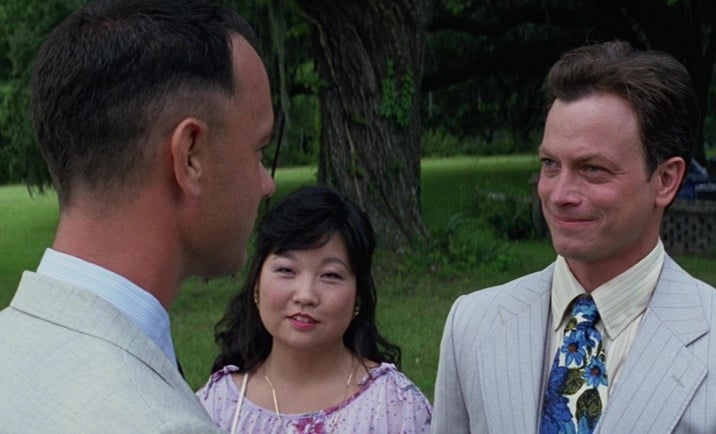
Forrest Gump is a real tear-jerker, so you can’t really blame him for it. The movie is a fantastic tale that is filled with nearly every emotion that one can experience. Even producer Wendy Finerman couldn’t help but comment on it in an interview, describing the movie as an “emotional journey” that can make viewers feel alive.
Dave Chappelle's Opinion
Comedian Dave Chappelle once joked on The Daily Show with Jon Stewart that he didn’t like the movie because Forrest Gump, a man with a below-average IQ, was a much better actor than he was. Chappelle reportedly has an IQ of 185.
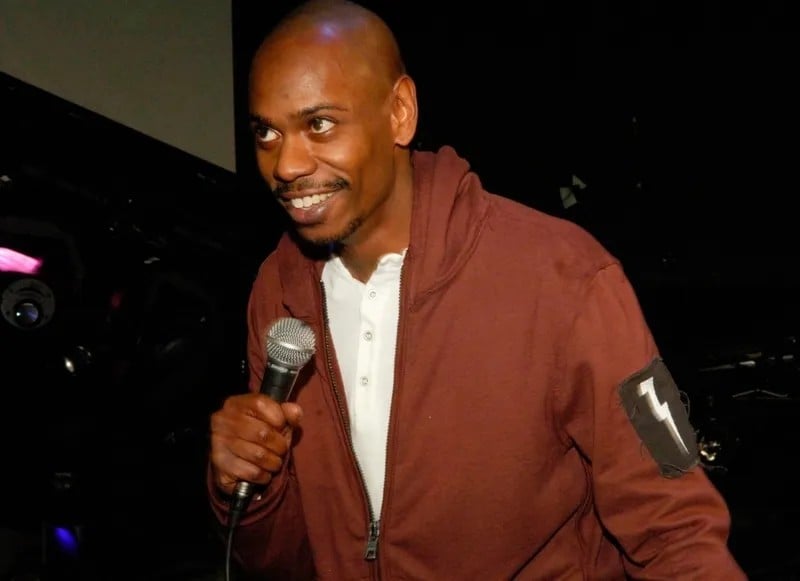
Daily Choices
Chappelle also joked that it was hard for him to watch someone like Forrest out-achieve him for two and a half hours, and that watching Forrest do more by accident than he can on purpose made him “furious.”
A Successful Failure
Despite raking in $678 million at the box office, the movie was not a financial success. It was seen as a “successful failure,” largely due to production costs, marketing costs, distributors’ and exhibitors’ hefty fees, and the vast sums paid to the lead actor and director.
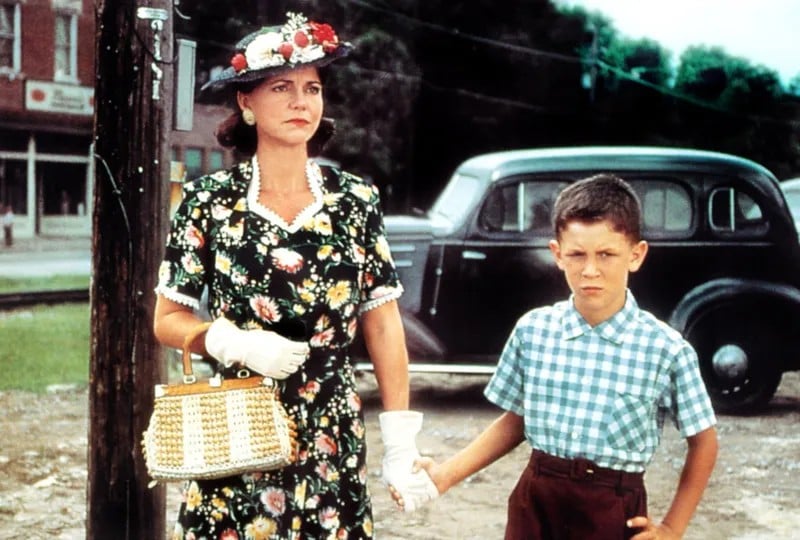
Daily Choices
In the end, Paramount Pictures’ losses amounted to $62 million. Two of the movie’s producers also blamed this loss on the poor system of accounting in Hollywood that heavily favored studios as well as directors and actors with enough clout to demand percentages of gross rather than net profits.
Young Forrest
When the casting team held an open casting call for the role of young Forrest, they went in not knowing exactly what they were searching for. All they knew was that they needed a young Tom Hanks “with light eyes and a quirky disposition.” They surely found all that in Michael Conner Humphreys.

Ifun
Humphreys received a nomination at the 16th Youth in Film Awards for his role in the movie. However, Humphreys decided not to pursue his acting career after Forrest Gump. He enlisted in the army after high school, then attended the University of North Alabama after completing his service.
Meeting the President
After Forrest is certified as an All-American football player, he travels to Washington DC to meet President John F. Kennedy. At the White House, Forrest helps himself to fifteen Dr Peppers. When it was his turn to be congratulated by JFK, all he could say was, “I gotta pee!”
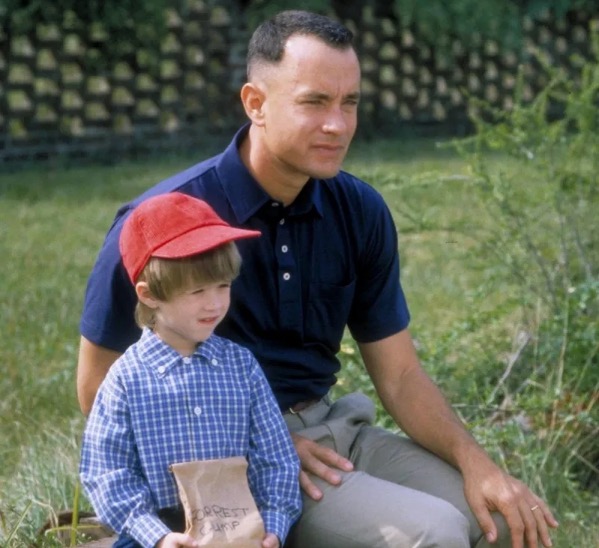
Daily Choices
Various special effects were used to make it appear as if Tom Hanks was shaking JFK’s hand. Hanks was first filmed against a blue screen, then he was incorporated into archive footage of JFK through techniques such as morphing, image warping, rotoscoping, and chroma key.
Swapping Projects
Forrest Gump wasn’t originally a Paramount Pictures project. The rights to this movie had been owned by Warner Bros., but the studio decided to not move forward with the project due to fears that audiences would no longer be interested in it following the success of 1988’s Rain Man, whose main character was a man with a mental disability.
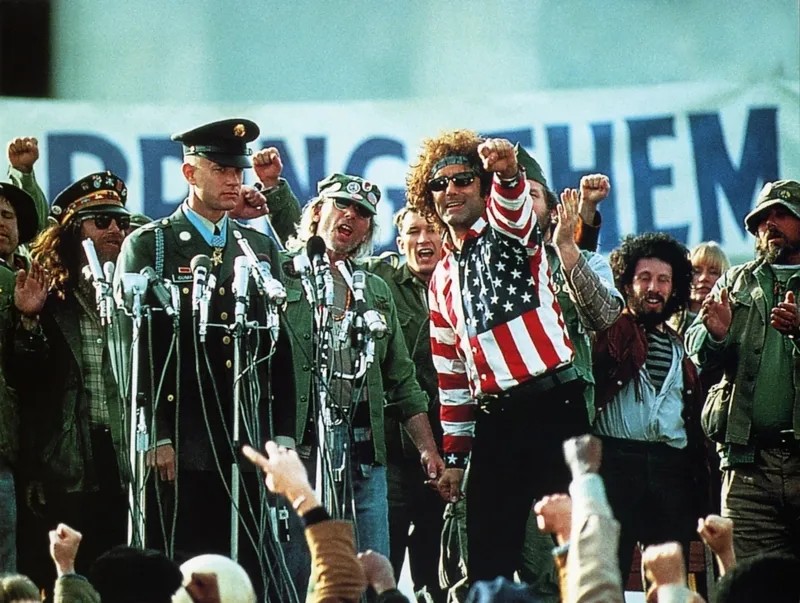
Daily Choices
Warner Bros. would eventually give up the rights to Forrest Gump in exchange for the rights to Executive Decision, which Paramount had. Warner Bros. also paid Paramount $400,000. Warner Bros. would eventually release Executive Decision – an action movie starring Kurt Russell, Steven Seagal, and Halle Berry – in 1996.
The Soundtrack
All of the songs in the movie’s 32-song soundtrack were by American artists. Among the artists that were featured on the soundtrack include Elvis Presley, Aretha Franklin, the Beach Boys, the Doors, Simon & Garfunkel, and The Doobie Brothers.

Daily Choices
The soundtrack rose from number 34 to number 7 on the Billboard 200 albums chart on July 30th, 1994. On August 6th, it moved from number 7 to 3. A week later, it reached its peak position of number 2, staying there for seven weeks until it was displaced by The Lion King: Original Motion Picture Soundtrack.
